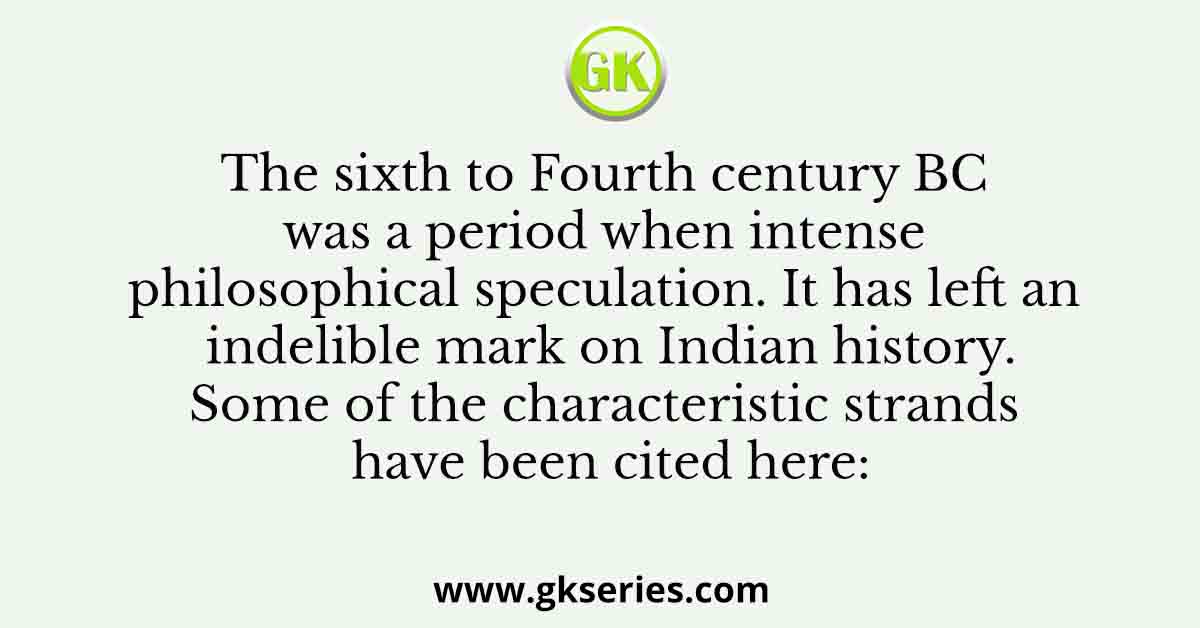
Q. The sixth to Fourth century BC was a period when intense philosophical speculation. It has left an indelible mark on Indian history.
Some of the characteristic strands have been cited here:
1. Ucchedvada – Annihilationism
2. Sashvat Vada – Eternalism
3. Ajivikas – Fatalism
4. Charavakas – Materialism
Select the code for correct ones:
(a) 1 and 2
(b) 2 and 4
(c) 2, 3 and 4
(d) 1, 2, 3 and 4
Ans: (d) 1, 2, 3 and 4
Explanation:
The correct answer is (d) 1, 2, 3, and 4.
All the given characteristic strands of philosophical speculation during the sixth to fourth century BC in India are correct:
- Ucchedvada – Annihilationism: Ucchedvada refers to the philosophical view of annihilationism, which suggests that existence ends with death or that there is no continuity after death.
- Sashvat Vada – Eternalism: Sashvat Vada represents the philosophical view of eternalism, which posits that existence is eternal and that there is an unchanging reality beyond the transient world.
- Ajivikas – Fatalism: Ajivikas were followers of the Ajivika school of thought, founded by Makkhali Gosala. The Ajivikas believed in a doctrine of fatalism, which held that human actions and outcomes are predetermined and controlled by fate or cosmic forces.
- Charavakas – Materialism: Charavakas, also known as Lokayatas, were proponents of a materialistic philosophy. They rejected metaphysical concepts and focused on sensory perception and material existence as the primary basis of knowledge and understanding.
Therefore, all the given strands are correct, and the answer is (d) 1, 2, 3, and 4.





